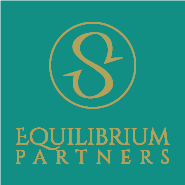Who Can You Trust?
Trust. Respect. Honesty. These words are banded around so regularly it is easy to loose touch with what they really mean on a day-to-day, moment-to-moment basis. It is how these values play out in our non verbal dialogue with ourselves and others that I am interested in. It’s the subtle moments. The flick of the eyes, the touch of the face, the shift of the feet, the misplaced smile.
Nothing happens in the inter-relational space, without it first happening intra-relationally. You cannot build trust-based relationships externally without first cultivating self trust - do I trust myself to listen to my true feelings? Do I trust that I will take the time to recognise my needs? Do I trust that I will respect my needs and my ‘self’? Can I make mistakes and practice self-compassion? Can I trust myself to speak my truth?
But wait a minute. Who is this I? Who is the self? This very expression suggests there are two of us. The I and the self. The ego and our true being. When I make a commitment to self-care, self-respect and self-love and follow through with it, I build my own self trust. These are no small tasks and require emotional maturity and skill.
Growing up with an alcoholic father, I learnt to navigate my way through the world by reading others. Always hyper-vigilant and sensitive to the mood swings of others, I became good at anticipating other peoples’ needs and views. This came at a cost. Spending all my time attending to my external world, I lost the ability to connect with my inner world. You cannot have self trust without first having an open and honest relationship with your ‘self’. If you spend all your time second guessing other people, you lose the most important relationship of all.
Often when I don’t trust someone else, it is not the other who is wrong, bad, unpredictable, inconsistent. It is simply that I cannot trust myself when I am around this other person. I find myself moving into old people pleasing patterns - behaviour that does not serve me any longer and yet is a fall back mechanism in moments of stress. I move away from my ‘being’ and into my mind-identified self.
Horses offer such great learning on this subject. I find it fascinating to observe how they respond to us in such different ways. I often wonder why it is that a horse can respond completely differently to two people, while the humans’ actions on the surface appear to be exactly the same. What is the difference that makes the difference?
Horses experience all forms of emotion. The same as humans. The difference is that horses do not try to avoid their emotions and do not separate what they feel from how they act. They act under survival instinct as they are prey animals.
It is perhaps because of this vast ability to really feel and accept the whole range of emotion, and because their prey-animal instinct, that they can sense when we are being incongruent. That is, when our inner world is not matching up with our exterior.
When a human interacts with a horse, the horse often mirrors what the human is feeling, getting right to the 'inner truth'. While horses have their own intrinsic nature and way of being in the world, they can also become accurate mirrors for our inner selves, reacting in ways that reflect what is going on under the surface for the human counterpart.
When we can recognise and let go of our masks, our defenses, our tactics, our old stress patterns, we might be able to feel what is underneath that. Once we are able to connect with the pure emotion in its most raw form, the horse will often connect and bear witness to us in extra-ordinary ways.
The horse might even find ways to take this one step further - to affirm us when we are feeling our most difficult and challenging emotions. When we are at our most vulnerable, the horse helps us to activate this sense of self-trust. Imagine a boss, a line manager or a coach who was able to do that?
Eckhart Tolle, the world renowned Mindfulness teacher, has an interesting definition of trust. He says that trust is simply the absence of fear. Of course he is not talking about the kind of reality based fear, such as the lion is about to jump out of the bushes. He is talking about the fear we create internally - the fear of judgment, our own feelings, of living authentically. According to Tolle, trust is the natural state when we are living beyond our heavily mind-identified state and, instead, living from our true essence or being. This state of being is, of course, the place the horse lives from every day without trying. No need for mantras, 7 steps to trust, acronyms or flow diagrams. Once we are truly present to this being, trust flows automatically. Trust just ‘is’.
